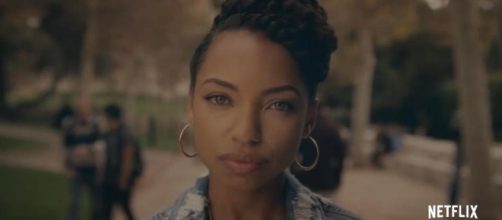Everyone knew that with the release of Netflix’s series adaption of the movie “dear white people,” there would be naysayers. And, like clockwork, they descended upon the internet with cries of reverse racism and unfairness. Of course, if they’d taken a moment to watch the series they would have seen the title explained point blank in one of the episodes, but for those who haven't watched the show, I’ll explain it here.
'Dear White People' is a misnomer, on purpose
“Dear White People” is not racist, neither in content nor in the name. For background, the show follows two catalysts on the predominantly white campus of Winchester University.
Both of these incidents are, as to be expected, racially charged. One of the main characters, a biracial girl named Samantha White (played by Logan Browning), comments on those events, along with other racial issues, on a campus radio talk show called “Dear White People.” Now, that title has some punch to it, and it’s supposed to. It’s provocative, for good reason. As the series progresses we get insight into the origin of Sam’s choice. She and her friend, Coco (played by Antoinette Robertson) coined the phrase themselves as a way of dealing with uncomfortable or annoying instances of microaggressions as perpetrated by their white friends. For instance, after a conversation about racial preferences in boyfriends with their white friends, they confided in each other, “Dear white people, this just in: Dating a black person to piss off your parents is a form of racism.”
The radio show is Sam's continuation of that: highlighting instances of racism and prejudice that a majority of her white classmates genuinely don’t see as such.
Observations such as, “Dear white people, please stop touching my hair. Does this look like a petting zoo to you?” or detailing the frustration with being asked “What are you?” by random strangers, referencing her race.
As a clever foreshadowing of the criticism this show has been garnering, Sam herself receives a lot of criticism for her radio show. When an irate student calls to air his grievances, she explains, “‘Dear White People’ is a misnomer. My show is meant to articulate the feelings of a misrepresented group outside the majority.”
This show in itself does exactly that. “Dear White People” isn’t meant to belittle white people or make them hate themselves for being white. It’s meant to show the problems that are still very present in society when it comes to marginalized groups.
And for those saying, 'But what if there was a ‘Dear Black People’ show?'
In regards to an alternative, “Dear Black People,” let’s look at the term reverse racism. People say that “Dear White People” is an example of "reverse racism", and cite the theoretical “Dear Black People” version as proof. They’re right, a show called “Dear Black people” would spark outrage. Why is that? That would be because black people, as a marginalized group, do not hold real power in this society. And so jokes or comments made by black people pose no real threat to white people as a whole. Stereotypes about white people that might be joked about but at the end of the day, don’t negatively affect them.
On the other hand, jokes and stereotypes perpetuated about black people are harmful to black people, as evidenced by the discrimination we face daily.
It’s definitely arguable that not every single black person is being discriminated against every hour on the hour but it’s definitely a fact that any discrimination we do face comes from a system of racism that has been in place for a very long time. This is why reverse racism is not a thing, and this is also why there’s no need for a “Dear Black People.” Those calling for that or using that as a point for arguing have missed the entire point of “Dear White People.” As put explained in the original 2014 film, "Dear White People," "Racism describes a system of disadvantage based on race. Black people can't be racist since we don't stand to benefit from such a system." Prejudice, yes. But racist?
No.
At the opening of this series, a James Baldwin quote is used: “The paradox of education is that as one begins to become conscious one begins to examine the society in which he is being educated.” This show serves to educate those who may not be aware of the fact that racism is alive and well, whether it be in the form of white college students attending a blackface party, or a black student unfairly having to stare down the barrel of a cop’s gun. Some people are going to be uncomfortable with being educated on this harsh reality. But, it’s entirely necessary.


